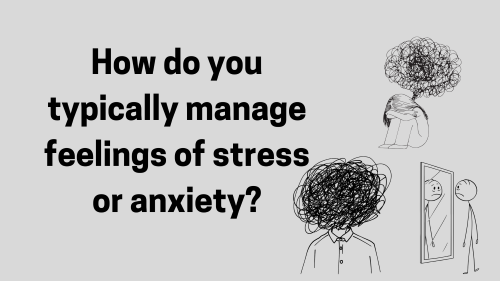
How do you typically manage feelings of stress or anxiety?
- The Mechanisms of Stress
- Effects of Stress on Mental Health
- Common Stressors in Daily Life
- Strategies for Managing Stress
- Cognitive-behavioral Techniques
- Seeking Professional Help
- Creating a Stress Management Plan
Introduction
Stress has become typical for many people in today’s fast-paced environment. Maintaining general well-being requires an awareness of how stress impacts mental health, which extends to personal duties and professional deadlines. This article investigates the impacts, both physiological and psychological, of stress as well as useful coping mechanisms.
1. The Mechanisms of Stress
Stress: What Is It?
Stress is the body’s and mind’s reaction to demands made on it or from without. It can take on diverse shapes and sizes, impacting people in different ways according to their resilience, coping strategies, and general state of health. People of all ages and backgrounds suffer stress, ranging from minor setbacks to significant life transitions.
Stress Types
1. Acute Stress: This brief stress usually results from impending dangers or difficulties. Some examples are time constraints, public speaking, and abrupt schedule adjustments.
2. Chronic Stress: Chronic stress lasts long and is frequently associated with persistent problems, including long-term health problems, marital troubles, or financial hardships. If not handled properly, it can significantly negatively influence general well-being.
Effects on the Body and Mind
• Physical Effects: Extended stress can cause physical symptoms, including headaches, tense muscles, digestive issues, and compromised immune systems. Additionally, it could worsen pre-existing medical disorders, including cardiovascular disease and hypertension.
• Psychological Effects: Stress can exacerbate anxiety, exacerbate depression, and damage mental health by affecting memory and focus. Chronic stress may also impair one’s ability to bounce back from emotional setbacks and degrade one’s general quality of life.
Coping Mechanisms and Handling
Identifying stressors, implementing coping mechanisms, and getting assistance when required are important aspects of good stress management. People can improve emotional resilience and lower stress levels by using mindfulness meditation, exercise, and relaxation techniques.
• Physiological Responses: Explain how the body reacts to stress by releasing cortisol and adrenaline.
2. Effects of Stress on Mental Health
• Anxiety and Depression: Examine the relationship between protracted stress and depression and anxiety disorders.
• Cognitive Function: Discuss how stress affects mental functions, including memory, focus, and judgment.
• Emotional Well-Being: Describe how mood disorders and emotional instability can result from long-term stress.
3. Common Stressors in Daily Life
• Workplace Stress: Analyze the causes of occupational stress and its effects on mental health.
• Personal stresses: Talk about the obligations to one’s family, financial strains, and other typical personal stresses people encounter.
4. Strategies for Managing Stress
• Mindfulness and Meditation: Stress the advantages of mindfulness techniques for lowering tension and encouraging calm.
• Exercise and Physical Activity: Describe how regular physical activity may reduce stress by boosting mood and producing endorphins.
• Healthy Lifestyle Options: Talk about how stress management relies on a balanced diet, enough sleep, and abstaining from drugs.
5. Cognitive-behavioral Techniques
• Thought Restructuring: Provide examples of confronting pessimistic ideas and replacing them with more uplifting and productive ones.
• Stress Management Strategies: Describe techniques for relaxing, such as deep breathing exercises and gradual muscular relaxation.
6. Seeking Professional Help
• Therapy and Counseling: It is advised that readers seek professional help from therapists or counselors when stress becomes intolerable or persistent.
• Medication: Talk about how medicine may treat mental health issues and extreme stress while highlighting the value of professional advice.
7. Creating a Stress Management Plan
• Personalized Strategies: Help readers develop a personalized stress-reduction strategy that considers their demands and preferences.
• Goal-setting: Provide a model or checklist for establishing realistic objectives and monitoring the development of stress-reduction initiatives.
Conclusion
Stress is a natural part of life, but good stress management is critical for preserving mental health and general well-being. People may live happier, more satisfying lives if they are aware of stress’s negative impact on mental health and put these techniques into practice.
Recall that managing stress and fostering emotional resilience include prioritizing self-care and getting necessary help. To keep moving toward a stress-free existence, look into other materials on mental health and stress management. Join our email to get frequent updates and tips on maintaining mental health.
